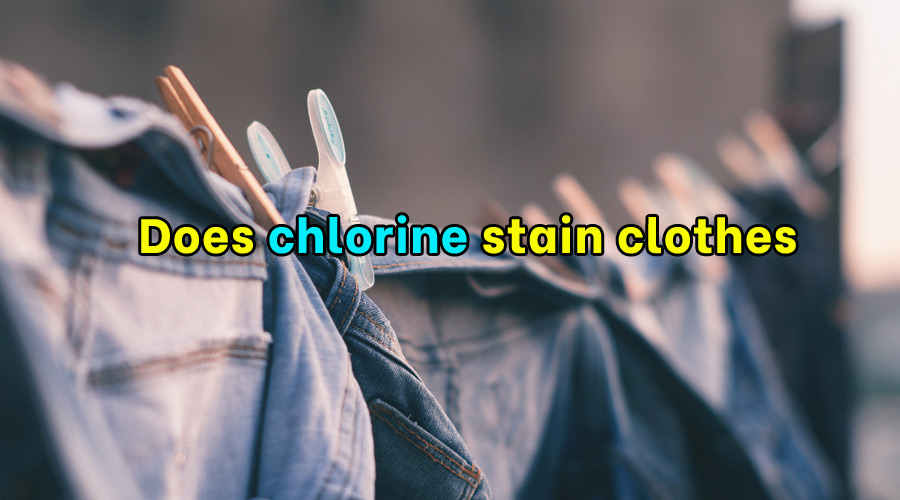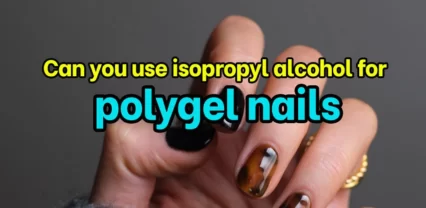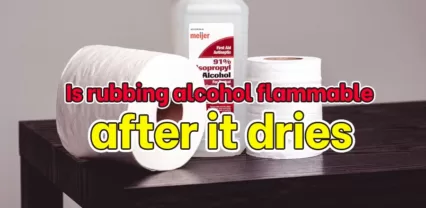Chlorine is a chemical element that can be readily recognized by its atomic number 17 as well as its symbol Cl. It can also be identified with its bleach-like smell. There are various ways chlorine can be used. It can be used as a disinfectant, antiseptic, and also in the production of drugs, paper, dyes and plastic, and many more. However, chlorine does have side effects which include, nose, skin, and eye irritation.
In as much as those are notable side-effects, however, our focus in this guide shall be on a mild effect of using chlorine stain. We shall be cross-referencing claims like does chlorine stain clothes as well as 6 step-by-step approaches on how to remove chlorine stains from white clothes. Step 2 is important if you want a satisfactory result.

Will chlorine stain clothes

Yes, the chlorine will cause yellowish discoloration on your clothes and leave it with a pungent smell that can stay on the cloth or skin for a long time if the stain is not well treated. The damage of chlorine on fabrics is not only limited to that, it will also fade and weaken the clothing fabric.
Does pool chlorine stain clothes
Yes, pool chlorine will stain clothes. When your cloth comes in contact with pool chlorine, it will stain and also bleach your cloth. However, the reaction may not be immediate.
Does none chlorine bleach stain clothes
Yes, non-chlorine bleach will stain your clothes. Although nonchlorine bleach is a very effective stain remover, however, they will whiten your clothing fabric if you wash your clothes with them. Nonchlorine bleach contains hydrogen peroxide which oxidizes organic materials just like chlorine does. The only difference with their reactions is that a non-chlorine bleach reacts slower and is weaker compared to chlorine.
Why chlorine will stain fabric
Chlorine will stain your fabric because when chlorine comes in contact with fabric, it makes the fibers on the clothing weak, eat the holes, and as a result lead to color changing of the fabric.
Does chlorine pool damage clothes

Yes, a chlorine pool can damage your clothes. Chlorine will stain, fade, weaken your clothing fabric and can even turn the fabric to yellow if not cleaned properly. Therefore, after having a nice time in the swimming pool with chlorine, it is recommended that you wash your swimsuit or other clothing immediately before the bleach in the chlorine starts to react to the fabric.
Is chlorine stain permanent
No, chlorine stain is not permanent. However, when it appears on some surfaces like suede, leather, vinyl wall covering, and clothes, it can be permanent. This is because, unlike other materials, once chlorine touches any of these surfaces, it reacts immediately and changes its color.
Does chlorine come out of clothes
Yes, the chlorine will come out of clothes. Chlorine stains on clothes may look unsightly and make them look unkempt, however, with the right cleaner and method, the stain will come out of clothes. Although the process may be a little difficult.
What gets rid of chlorine stains?
It is quite understandable if you fidget at the sight of a chlorine stain, however, with the right cleaner at hand, you are just a few steps away from cleaning the fabric. To eliminate chlorine stains from clothes, your best bet is a non-chlorine detergent.
Fortunately, there are lots of non-chlorine-based detergents you can choose from. While you can get some at the comfort of your zone, you can only get some over the counter. Some of these cleaners include; Sodium Thiosulphate, vinegar, makers for chlorine, and color strippers for chlorine.
How to remove chlorine stains from white clothes

Once you notice that you have chlorine on your clothes, it is better to treat it immediately because if it is left on it for long, you are risking getting your cloth bleached. For tips on how to get rid of chlorine stains from your cloth, follow the simple steps below.
Cleaning with warm sudsy water
- Wipe as much of the chlorine stain as you can using a clean towel to help get rid of excess stains.
- Dip another towel or cloth on warm sudsy water, squeeze to get rid of excess water, and sponge on the stained surface.
- Rinse the treated spot with cold water and wipe dry.
How to remove chlorine stains from black clothes

To remove chlorine stains from black or colored cloth, the best cleaning option for you is a maker specifically made for cleaning chlorine stains. This cleaner will not only get rid of the stain but will also help restore the color of your fabric if it is bleached.
Cleaning with makers for chlorine
- Go to a craft store, buy a fabric maker shade that best complements the original color of the stained fabric. Test the maker on an inconspicuous part of the cloth, then apply.
- Place the cloth where it can be exposed to direct sunlight so that the ray of the sun can fade out the areas around the circumference of the stained spot to balance the shades.
- You can touch up treated spots after each laundry if it becomes necessary.
How to remove yellow chlorine stains from swimsuits

Yellow stains on swimsuits are most likely caused by chlorine or sunscreen. If you notice a yellow stain on your swimsuits, respond immediately with the simple tips below.
- Make a solution from the mixtures of one and a half liters of warm water and a cup of white vinegar in a bucket.
- Soak the stained cloth in the solution for about an hour.
- Rinse afterward with cold water and dry
Other chlorine stains removal guides
How to get chlorine stains out of the bathing suit
- In a large container or bucket, mix color remover and water to form a cleaning solution.
- Soak the stained cloth in the solution for about an hour.
- Rinse the cloth thoroughly with cold water.
- Check for stains. If completely gone, dry your suit the normal way, if not, repeat the process.
How to get chlorine stains out of leather
- Mix equal parts of cream of tartar and lemon juice to form a paste.
- Rub the paste into the solution with a soft cloth or a paper towel.
- Leave the paste to sit on the stains for several hours.
- Wipe a damp cloth on the treated spot to get rid of the paste.
- Apply a leather conditioner.
How to get chlorine stains out of carpet
- Soak a clean cloth in sodium thiosulphate (an absorbent cloth is ideal).
- Blot the cloth directly on the stain. Do this until you see any of the following signs.
- There’s no more stain on the carpet.
- The carpet cannot absorb the chemical any longer.
- You’ve already gotten the whole spot saturated with the chemical.
- Rinse the treated spot afterward with water.
How to clean chlorine stains from silver
- Form a paste by mixing baking soda and water in the ratio of 2 parts to 1 respectively.
- Scrubbing as gently as you can with your finger, rub the paste on the silver.
- Rinse the silver with warm water.
- Dry afterward with a clean soft cloth.
Chlorine stain FAQs
Does chlorine stain sterling silver?
Yes, chlorine does stain sterling silver. Sterling silver is made of copper, and when chlorine reacts with the copper alloy, it changes to either light brown or black.
Can pool chlorine stain teeth?
No, pool chlorine will not stain your teeth. However, if the PH level of the swimming pool increases and it becomes acidic, it may dissolve your teeth. This is commonly seen in gas-chlorinated swimming pools as hypochlorous acid can be easily formed.
Does chlorine stain artificial grass?
Yes, chlorine will stain artificial grass. Chlorine is a chemical and once it binds with water residue, they bond together to create calcium buildup over time and change the color of the grass from green to white. However, the witness of the grass as a result of the reaction of the chlorine should not be mistaken for a bleaching effect.
Does chlorine stain silver?
Yeah, the chlorine will stain the silver. Chlorine oxidizes iron and creates iron oxide (rust). Chlorine can have a similar effect on your copper material.
Can chlorine stain skin?
No, chlorine does not stain skin, however, it can cause skin dryness which can lead to irritation. Chlorine is a natural irritant, it can open up pores and stop off all-natural oil from the skin. These natural oils keep the skin looking healthy and moisturized.

“Your home is a representation of yourself, and it should only be filled with clean items that you enjoy and use”
Professional cleaning expert

![Will rubbing alcohol ruin furniture [Truth Exposed]](https://www.sanitisationsingapore.com/wp-content/uploads/2021/09/Will-rubbing-alcohol-ruin-furniture-426x208.webp)

